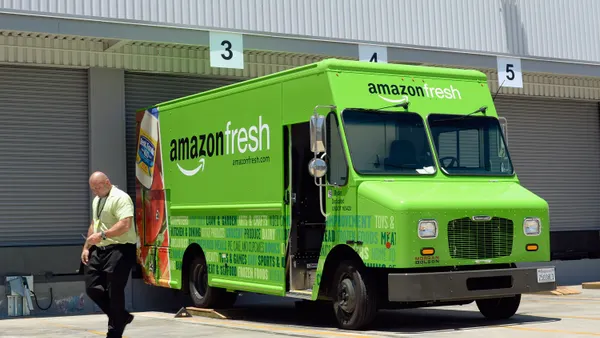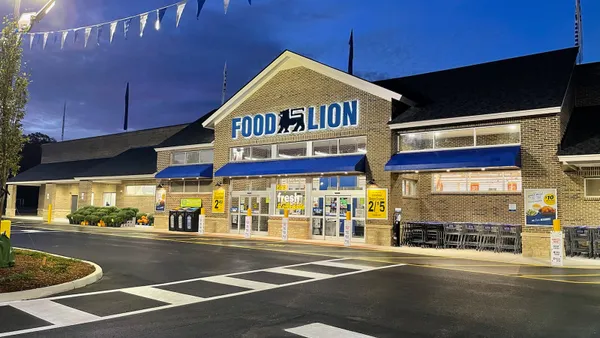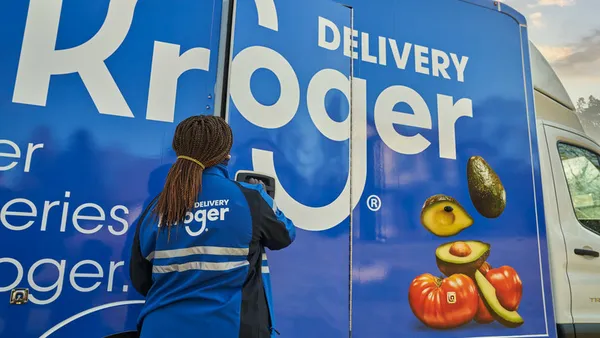Dive Brief:
- Online grocer Farmstead has raised $7.9 million in Series A funding, bringing the total amount of investment the company has brought in to $14.5 million, the company announced Wednesday. The funding round was led by Aidenlair Capital and also included Y Combinator, Gelt VC, Duro, Maple VC, Heron Rock, 19 York and Red Dog Capital.
- Farmstead is also expanding its services to Raleigh-Durham, North Carolina, its third city and second foothold on the East Coast, the company announced Tuesday. The company opened a waitlist limited to the first 1,000 signups, and expects delivery operations to commence in early 2021.
- Instead of employing a third-party delivery service and paying for city-center real estate, Farmstead relies on proprietary AI technology and dark stores that function as delivery-centric warehouses, a strategy which it says helps it eliminate waste, reduce food deserts and serve broader areas.
Dive Insight:
Farmstead, which hopes to expand nationwide, is attracting new investment at a time when the company's delivery service is resonating with customers. Month over month in 2020, Farmstead’s customer base has ballooned by double-digits. In a further indication that people who try the service like it, three-quarters of Farmstead's customers participate in the company's free weekly recurring order program, which ensures access to a regular delivery slot each week and also provides access to discounts, according to the company.
By expanding to the East Coast, first in the Charlotte area in October and now in Raleigh-Durham, the grocer, which does not charge for delivery, is inserting itself in markets that are less crowded than its debut location, the San Francisco Bay Area. However, that is not to say that grocery delivery operations are not already well underway in the Carolinas. Numerous brands, including Sprouts and Food Lion, offer same-day delivery in the region via Instacart. Meanwhile, Lidl, Harris Teeter, Target, and others also offer delivery in North Carolina markets along with Walmart and Whole Foods.
The Carolinas have seen a huge expansion in the number of grocery brands on the ground in major metropolitan areas, which Mark Thompson, who tracks grocery real estate, recently predicted could outstrip shoppers’ demand. In Raleigh, this surge has been led by Wegmans, Publix and Lidl, though Walmart, Food Lion and Target still dominate the market.
Farmstead CEO Pradeep Elankumaran said North Carolina has an expansive mid-market consumer base, who are Farmstead’s primary target. Elankumaran estimated that 70% of shoppers in Raleigh-Durham shop around for grocery deals on a weekly basis. Raleigh-Durham and Chapel Hill, often referred to as the "Research Triangle" and home to Duke University, University of North Carolina and North Carolina State University, has a substantial university student population. Though mobile food ordering has taken off on campuses with services such as Uber Eats and DoorDash, college students’ appetites for online grocery delivery is less assured.










